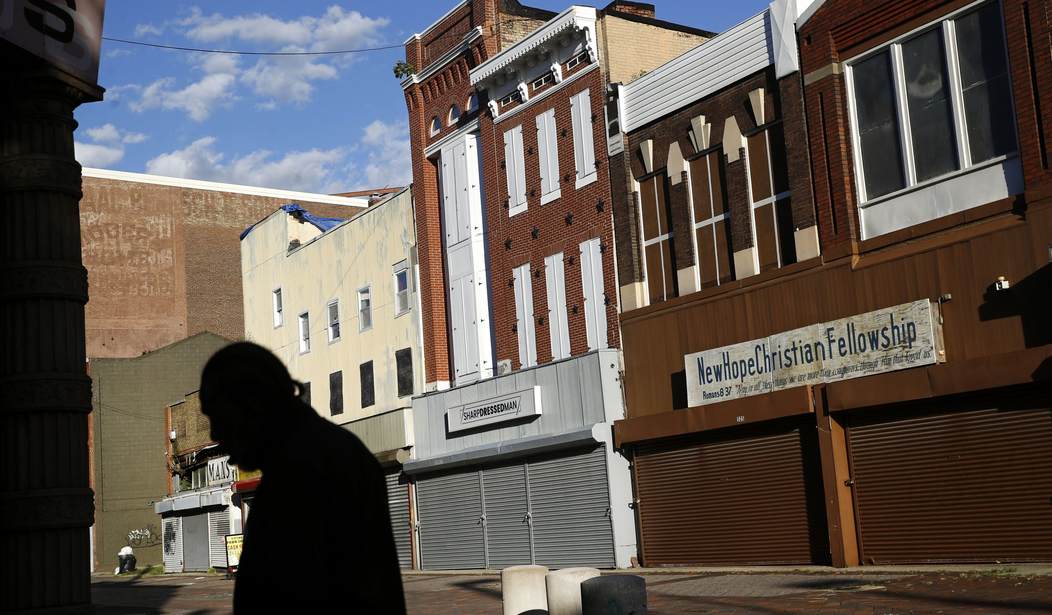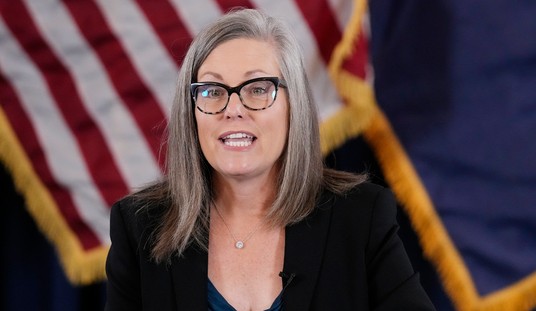Baltimore, Maryland is on pace for an eighth straight year of more than 300 homicides, despite repeated pledges by public officials to crack down on violent crime. Now it turns out that one “do something” gun-centric policy put in place by the Baltimore City State’s Attorney’s office led to lengthy delays in the Baltimore Police Department’s forensic crime lab’s ability to process evidence in a number of violent crimes from homicides to sex offenses.
A tip of the hat to the Daily Record’s Madeline O’Neill, who uncovered the story of how the State’s Attorney’s office, led by Marilyn Mosby, mandated back in 2018 that the police department start testing every firearm recovered for fingerprint and DNA evidence and the unintended (but entirely predictable) consequences that ensued.
In August 2018, amid relentless gun violence sweeping the city, the Baltimore Police Department’s forensic laboratory dramatically shifted priorities: The lab began processing every recovered firearm for fingerprints and DNA instead of testing guns on a case-by-case basis.
The policy change came at the urging of the Baltimore City State’s Attorney’s Office, which faced pressure to address gun crime and believed that forensic testing would make for stronger evidence in firearm possession cases.
But crime lab management objected to the move, and in 2020 the lab produced a report that found the policy was, by most metrics, a failure. The remarkably frank report argues that the policy did little to benefit gun prosecutions but contributed to ballooning backlogs in homicide and sex offense cases.
The report also suggests that the crime lab was forced to slow forensic testing in entire categories of violent crime, including carjackings and robberies, to handle the massive influx of firearms in need of processing. The new focus on guns did not differentiate between violent gun crimes and nonviolent cases, such as firearm possession.
“Backlogs have increased exponentially, investigative (DNA) matches have decreased, and some specific case types are no longer being routinely worked,” wrote Kenneth B. Jones, a deputy director in the Forensic Laboratory Section who authored the 2020 report. “Prior to the 2018 policy change, this was not the case.”
The policy was quietly reversed earlier this year, according to the head of the BPD’s Forensic Labratory Section, but the real question is why the mandate was ever handed down to begin with. Prosecutors had to know that testing every firearm recovered by police, including those involving non-violent and possessory offenses of carrying a gun without a license, was going to bog down the system. If they couldn’t figure that out for themselves, the Baltimore Police Department allegedly told them of that fact at the time.
In response to The Daily Record’s PIA request, the Baltimore Police Department said that in 2018, then-Assistant State’s Attorney Charles Blomquist raised concerns to then-Police Commissioner Gary Tuggle that prosecutors were losing gun cases because the crime lab did not routinely conduct DNA testing on firearms.
“Despite having no data to support this claim and despite objections from crime lab leadership it was decided that (handgun violations) would be the number one case type for the lab,” BPD’s Office of Legal Affairs wrote in the PIA response letter.
“After several years of the mandate being in place, the crime lab conducted a study on its efficacy. The conclusion that was reached that it is a major draw on the lab’s resources and does not produce any benefit to court cases that are apparent.”
So there was no benefit to the prosecutor’s office, even in the gun cases that supposedly demanded this kind of intensive testing. In fact, just 6% of handgun cases that involved the testing actually resulted in criminal charges being filed, and according to the 2020 report, more than half of those cases were either dismissed outright or “had no clear judicial purpose or outcome”.
That’s bad enough, but it gets much worse. The biggest impact the mandate had was in massive delays in processing evidence in many violent crimes.
The report makes clear, however, that the test-all-guns policy was a major drain on resources at the laboratory, forcing technicians to redirect scarce resources to thousands of firearm cases that otherwise would have been low priority.
Other casework suffered. According to the report, the backlog in preliminary forensic screening for homicide cases jumped by more than 200% from July 2018 to December 2019. The screening backlog in sex offenses jumped by 80%.
The backlog in DNA testing for homicide cases rose by 56%, while in sex offenses the backlog fell by 14%.
In all, the lab’s total screening backlog increased by 111%, or 156 cases, and its DNA testing backlog jumped by 41%, or 1,073 cases, according to the report.
The time it took to test Sexual Assault Forensic Exams, known as SAFE Kits, also grew while the gun-testing mandate was in place. According to a report on sexual assault investigations that BPD produced as part of its federal consent decree, the median number of days it took for a SAFE kit to be processed nearly doubled, from 112 days in 2019 to 202 days in 2020.
The sexual assault investigations report attributed the slower results to three factors: initial COVID-19 lockdowns, the time required to train two new hires, and “an ongoing mandate for the lab to work on processing handgun violation evidence.”
Most of these firearm cases were low priority for a reason; they didn’t involve any evidence whatsoever of a violent crime. But Baltimore politicians were (and are) intent on reducing crime by going after guns instead of focusing on the individuals who were actually perpetrating violent acts across the city, and that only made the problem worse. Violent offenders remained free to commit more crimes while evidence from their previous robberies, homicides, and sexual assaults went untested thanks to the mandate from the Baltimore City State’s Attorney’s office.
Don’t expect anyone to be punished for this failure either. The Assistant State’s Attorney who issued the directive is now a Circuit Court judge in Baltimore, and State’s Attorney Marilyn Mosby has her own legal issues to deal with. Meanwhile, the homicide rate in Baltimore is the highest in at least ten years, and there’s a chance the city could end up with the most murders in its history by the time we get to the end of the year. The one sliver of hope for Baltimoreans is that Gov. Larry Hogan has ordered the state police to drop the “good and substantial reason” requirement for concealed carry applicants, which will hopefully make it possible for residents to legally and lawfully carry a firearm in self-defense in the near future.









